Arts & Entertainment
The power of two
Brother/sister duo K’s Choice reunite for U.S. tour


K’s Choice — brother-sister duo Sarah and Gert Bettens — are back with their first album in eight years. (Photo by Frank Clauwers; courtesy Think Press)
K’s Choice
With A Fragile Tomorrow
Wednesday
8 p.m.
$20
Ram’s Head on Stage
33 West St.
Annapolis, Md.
Ramsheadonstage.com
It’s an exciting time for K’s Choice fans. The brother/sister alt rock band that came to international fame in the ‘90s with hits like “Not an Addict,” “Believe” and “Almost Happy” while touring with Alanis Morissette and the Indigo Girls, are back with the U.S. release of their first album in a decade, “Echo Mountain.”
Though released abroad in 2010, “Mountain” and its acoustic companion “Little Echoes” are available stateside this month to coincide with a U.S. tour that kicks off next week in Tennessee. On Tuesday they play Ram’s Head Live in Annapolis.
During an interview last week, Sarah Bettens, who co-fronts the native Belgian band with her brother Gert, spoke to the Blade from her home in Johnson City, Tenn., (about four hours from Nashville) where she moved to be with her partner 10 years ago about the time K’s Choice opted for a long hiatus.
“It’s near the North Carolina/Virginia border,” she says, admitting it’s a much different place to live than her native Belgium where most of her family still resides “within about a 15-mile radius.”
“Yes, it is a lot different, but that being said, it has changed a lot in the last 10 years. There was just an article in the local newspaper about two guys looking to adopt. It was on the front page and I remember thinking, ‘Ten years ago, this would never have been in the local newspaper.’ Some, I’m sure, were offended by it, but more and more, they’re in the minority. People seem to care less and less. … It was an adjustment at first, but everywhere you go, you’re able to find like-minded people. We have good friends here and we’re happy.”
Of the four kids Bettens and her partner are raising, she says they’re, “actually very respectful” of her music.
“It’s always a bit of a surprise that they’re respectful about anything at that age, but when I play locally, which is only maybe once every two years, they come and feel proud.”
Sarah and Gert have one older brother. She says he’s “a music lover, but not musically inclined.” She says he’s always been supportive of K’s Choice, whose hiatus, she says, was “a very conscious thing.”
In the time between the last K’s Choice album, “Almost Happy,” in 2000, Bettens, 40, has released three solo albums and an EP and has also contributed her husky, haunting vocals to several movie soundtracks. Gert, 43, also did solo work in the meantime.
“We always said one day we’d get back together when we were ready and we knew it would be great fun, but we also considered the hiatus a true hiatus,” she says. “We needed to work with some other people, do some other things. We’d never really worked with anybody else because we’d kind of grown up in our own band so that kinda kept us from experiences with other musicians. That just had always been the way it was right from the beginning, so it was healthy and fun for us to go our own ways for awhile.”
Bettens’ U.S. residency did make for a few slight challenges when it came time to reunite for “Echo Mountain,” which has earned strong reviews with All Music Guide calling it a “simple but mature and filler-free alt-rock album” that’s more “nostalgic” and “downright fun” than “angsty.”
“For a long time, I would only see him when I was doing my solo tours,” she says. “We sent some MP3s back and forth but eventually we did have to sit down in the same room and decide what kind of record we wanted to make. It was very hard to get direction until we did that.”
Bettens says there’s not ordinarily a huge distinction between the songs she writes for her solo projects and K’s Choice material though the material for her first solo album — around the time she came out as a lesbian in the early ‘00s — was more personal than K’s Choice material had typically been.
She came out to her family “as soon as I was out to myself,” but waited to come out publicly.
“I didn’t wait around with a big secret for years and years,” she says. “I just kind of discovered it myself, for some reason I haven’t fully figured out yet, at a very late age. I was 28. Looking back, I really wonder why I didn’t see the 25,000 signs there were from the age of 5. But for some reason it took me til age 28 to fully figure it out. I didn’t come out to the rest of the world right away, not because I was scared of some backlash, but I knew I would quickly become some sort of spokesperson and I really felt I had nothing much to say about it yet. It was all so new to me that I didn’t want to have to speak for the gay community. I didn’t think I had anything interesting to share.”
Being outed in a magazine shortly thereafter was “fine,” she says.
“It was probably supposed to happen that way,” she says. “It was good to show young people that lesbians are normal people too.”
SIDEBAR:
5 quick music questions with Sarah Bettens
WASHINGTON BLADE: Alt rock lyrics, especially in the ‘90s, are known to be sort of vague and oblique. Do you think about how direct you’re being when writing lyrics?
SARAH BETTENS: No, I don’t give it any thought when I’m writing. Afterwards, my brother and I laugh about how different our lyrics are. It’s a much more roundabout trip to get to the bottom of his lyrics I think.
BLADE: Your pitch always seems so dead on. When you’ve been singing professionally for many years, does that eventually become something that happens naturally or are you always thinking on some level about whether your pitch is right?
BETTENS: Sometimes when we listen back to, say, a three-part harmony, we will notice things like places where we tend to go a little flat every time so we know to watch out for it. Sometimes you listen back to a recording of a live show where you think you did a fantastic job and it’s a little disappointing because it always sounds more perfect the way you remember it in your head, which isn’t always the reality. And we do notice things in rehearsal, like, “OK, we tend to go flat here, we need to be careful of that.” I find simply looking up in those passages is helpful for tone.
BLADE: Having started your career before the Internet became really widespread, all things considered, has it been more of a blessing or curse for your music career?
BETTENS: There are obvious downsides. Everybody has lost money and record companies have gotten smaller and really struggled. We started right before that when everybody still had money so Sony was giving us big dinners and there was lots of money to record, a big budget for touring. That’s unheard of anymore. When we toured with Alanis, Sony gave us a tour bus, money to pay our musicians. Stuff like that today, at least on our level, is unheard of. … And it’s getting very hard for a band like us to get on the radio but even so, no matter how small you are or how dire the outlook, there’s always the chance that something will get discovered on the Internet. There’s always that hope. So to say it’s been a totally negative thing would be exaggerating. But for sure, we’ve lost money by not selling records. We’ll play some crazy sold out show in someplace like Israel where we’ve never been before and people will be singing along to every word and we know we haven’t even sold 2,000 albums altogether in Israel so you think, “How do they know all these songs so well?” It makes for pleasant surprises but it’s also a little disturbing too.
Theater
José Zayas brings ‘The House of Bernarda Alba’ to GALA Hispanic Theatre
Gay Spanish playwright Federico García Lorca wrote masterpiece before 1936 execution

‘The House of Bernarda Alba’
Through March 1
GALA Hispanic Theatre
3333 14th St., N.W.
$27-$52
Galatheatre.org
In Federico García Lorca’s “The House of Bernarda Alba,” now at GALA Hispanic Theatre in Columbia Heights, an impossibly oppressive domestic situation serves, in short, as an allegory for the repressive, patriarchal, and fascist atmosphere of 1930s Spain
The gay playwright completed his final and arguably best work in 1936, just months before he was executed by a right-wing firing squad. “Bernarda Alba” is set in the same year, sometime during a hot summer in rural Andalusia, the heart of “España profunda” (the deep Spain), where traditions are deeply rooted and mores seldom challenged.
At Bernarda’s house, the atmosphere, already stifling, is about to get worse.
On the day of her second husband’s funeral, Bernarda Alba (superbly played by Luz Nicolás), a sixtyish woman accustomed to calling the shots, gathers her five unmarried daughters (ages ranging from 20 to 39) and matter-of-factly explain what’s to happen next.
She says, “Through the eight years of mourning not a breeze shall enter this house. Consider the doors and windows as sealed with bricks. That’s how it was in my father’s house and my grandfather’s. Meanwhile, you can embroider your trousseaux.”
It’s not an altogether sunny plan. While Angustias (María del Mar Rodríguez), Bernarda’s daughter from her first marriage and heiress to a fortune, is betrothed to a much younger catch, Pepe el Romano, who never appears on stage, the remaining four stand little chance of finding suitable matches. Not only are they dowry-less, but no men, eligible or otherwise, are admitted into their mother’s house.
Lorca is a literary hero known for his mastery of both lyrical poetry and visceral drama; still, “Bernarda Alba’s” plotline might suit a telenovela. Despotic mother heads a house of adult daughters. Said daughters are churning with passions and jealousies. When sneaky Martirio (Giselle Gonzáles) steals the photo of Angustias’s fiancé all heck kicks off. Lots of infighting and high drama ensue. There’s even a batty grandmother (Alicia Kaplan) in the wings for bleak comic relief.
At GALA, the modern classic is lovingly staged by José Zayas. The New York-based out director has assembled a committed cast and creative team who’ve manifested an extraordinarily timely 90-minute production performed in Spanish with English subtitles easily ready seen on multiple screens.
In Lorca’s stage directions, he describes the set as an inner room in Bernarda’s house; it’s bright white with thick walls. At GALA, scenic designer Grisele Gonzáles continues the one-color theme with bright red walls and floor and closed doors. There are no props.
In the airless room, women sit on straight back chairs sewing. They think of men, still. Two are fixated on their oldest siter’s hunky betrothed. Only Magdelena (Anna Malavé), the one sister who truly mourns their dead father, has given up on marriage entirely.
The severity of the place is alleviated by men’s distant voices, Koki Lortkipanidze’s original music, movement (stir crazy sisters scratching walls), and even a precisely executed beatdown choreographed by Lorraine Ressegger-Slone.
In a short yet telling scene, Bernarda’s youngest daughter Adela (María Coral) proves she will serve as the rebellion to Bernarda’s dictatorship. Reluctant to mourn, Adela admires her reflection. She has traded her black togs for a seafoam green party dress. It’s a dreamily lit moment (compliments of lighting designer Hailey Laroe.)
But there’s no mistaking who’s in charge. Dressed in unflattering widow weeds, her face locked in a disapproving sneer, Bernarda rules with an iron fist; and despite ramrod posture, she uses a cane (though mostly as a weapon during one of her frequent rages.)
Bernarda’s countenance softens only when sharing a bit of gossip with Poncia, her longtime servant convincingly played by Evelyn Rosario Vega.
Nicolás has appeared in “Bernarda Alba” before, first as daughter Martirio in Madrid, and recently as the mother in an English language production at Carnegie Melon University in Pittsburgh. And now in D.C. where her Bernarda is dictatorial, prone to violence, and scarily pro-patriarchy.
Words and phrases echo throughout Lorca’s play, all likely to signal a tightening oppression: “mourning,” “my house,” “honor,” and finally “silence.”
As a queer artist sympathetic to left wing causes, Lorca knew of what he wrote. He understood the provinces, the dangers of tyranny, and the dimming of democracy. Early in Spain’s Civil War, Lorca was dragged to the the woods and murdered by Franco’s thugs. Presumably buried in a mass grave, his remains have never been found.
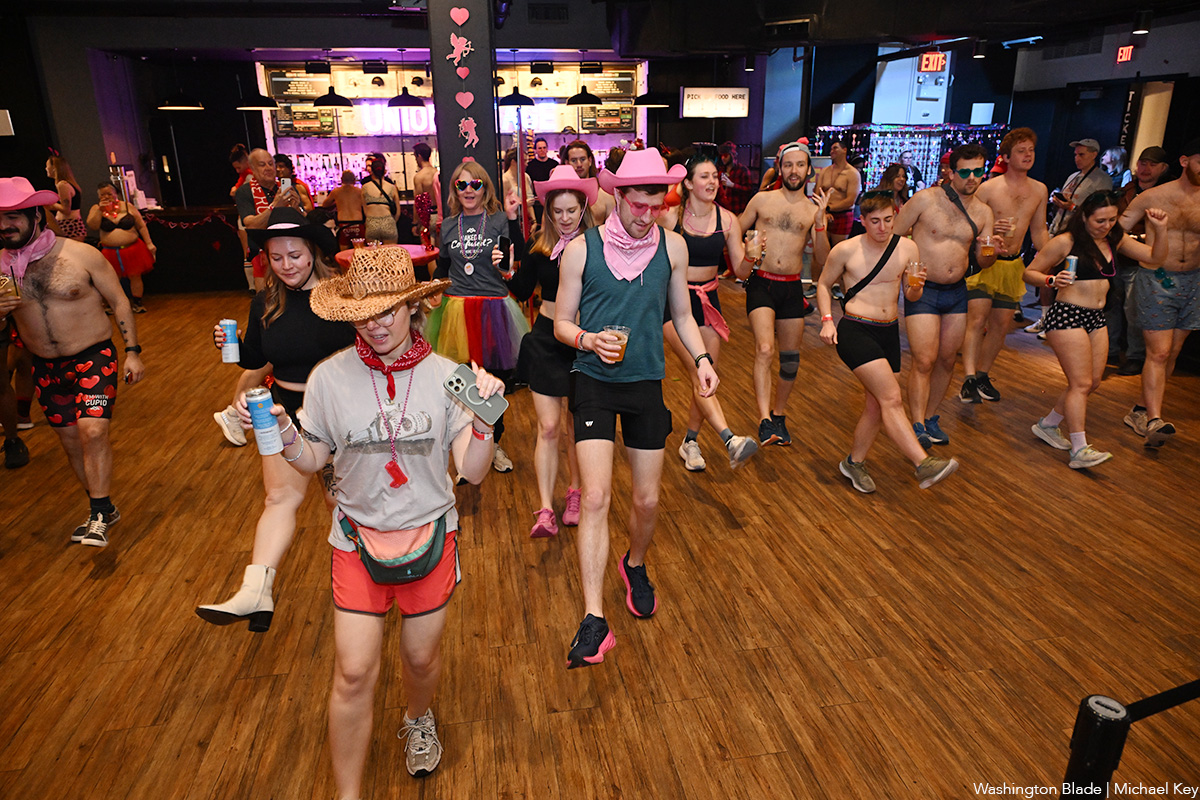
Cupid’s Undie Run, an annual fundraiser for neurofibromatosis (NF) research, was held at Union Stage and at The Wharf DC on Saturday, Feb. 21.
(Washington Blade photos by Michael Key)



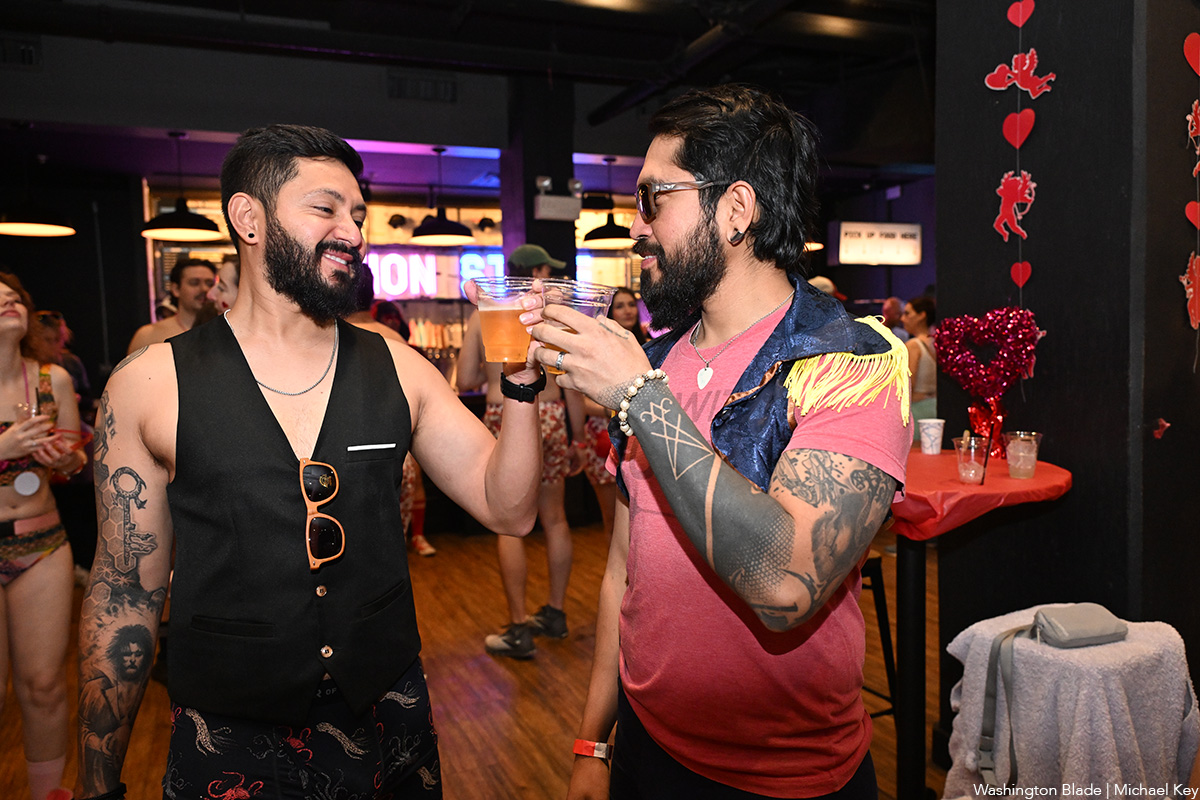
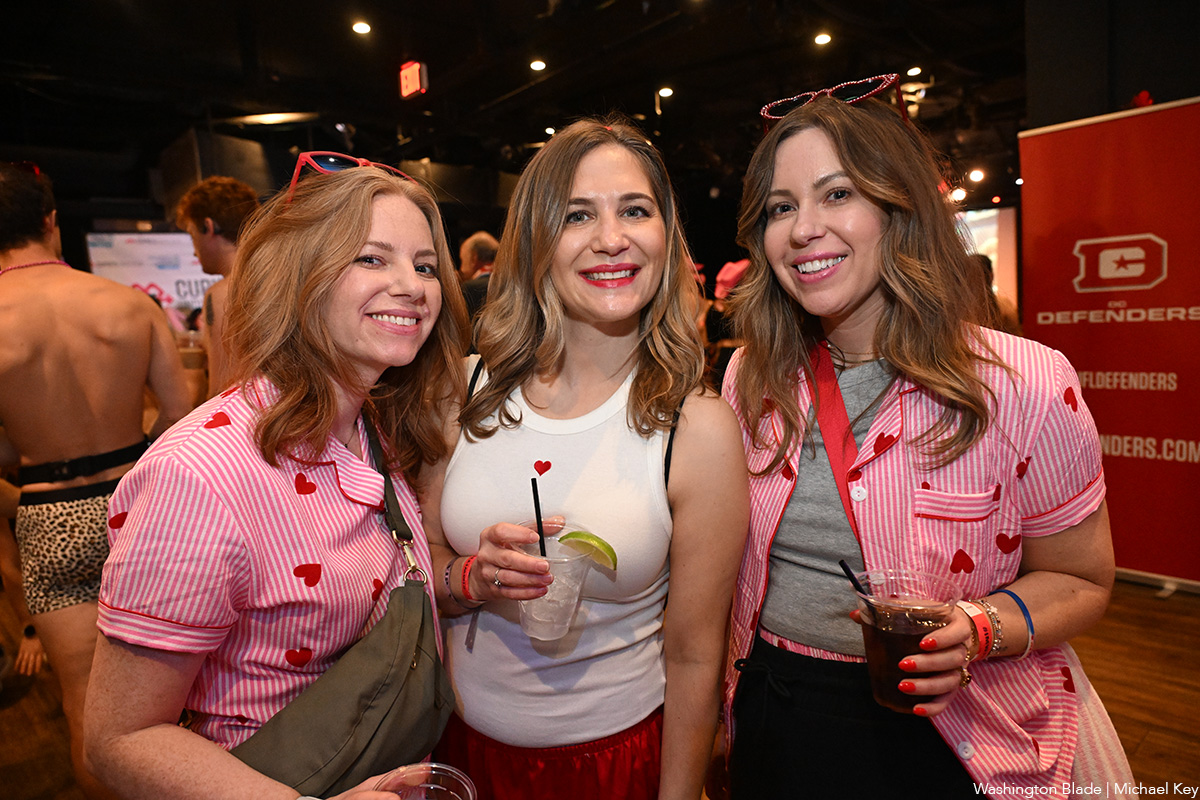

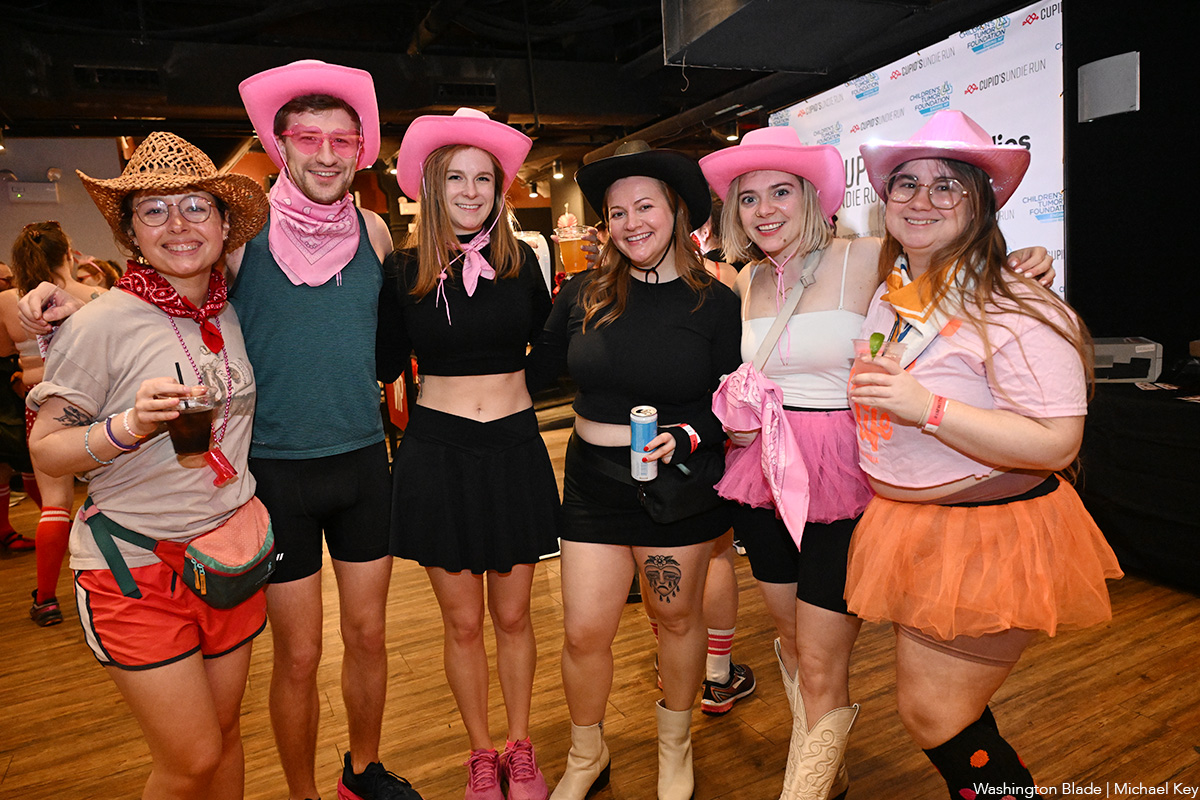

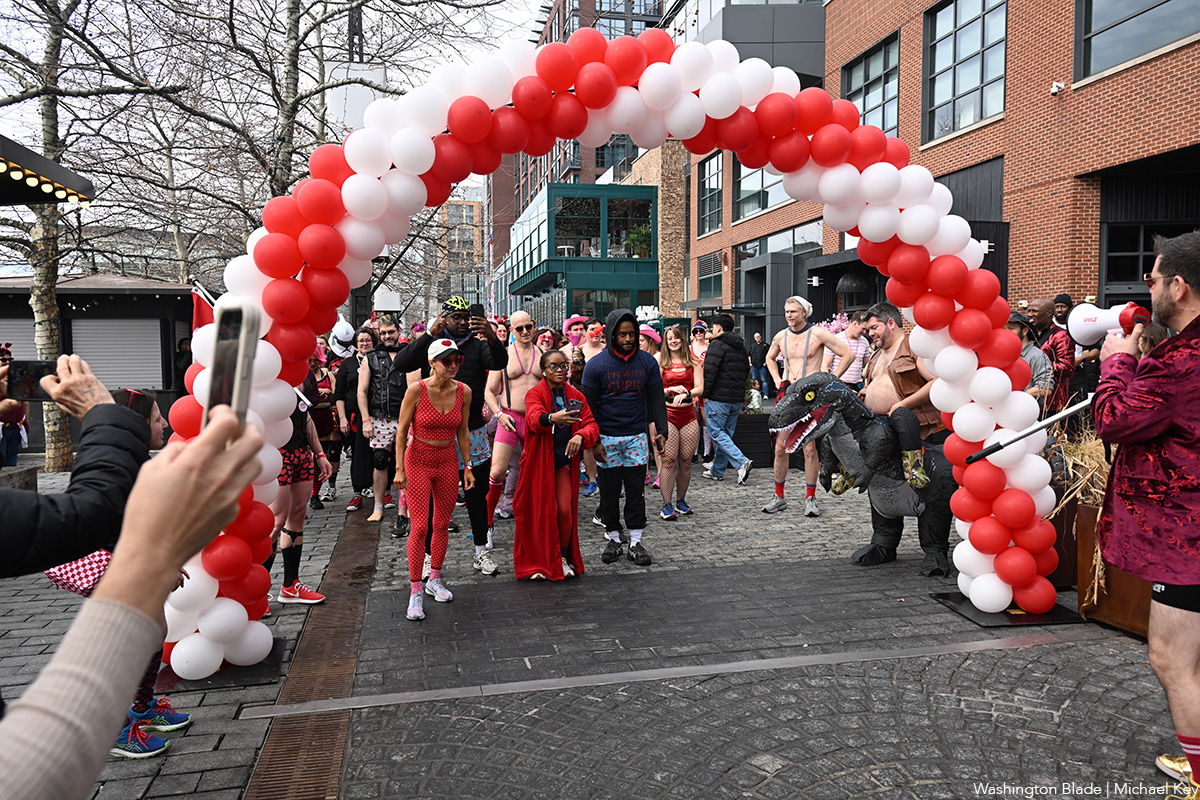
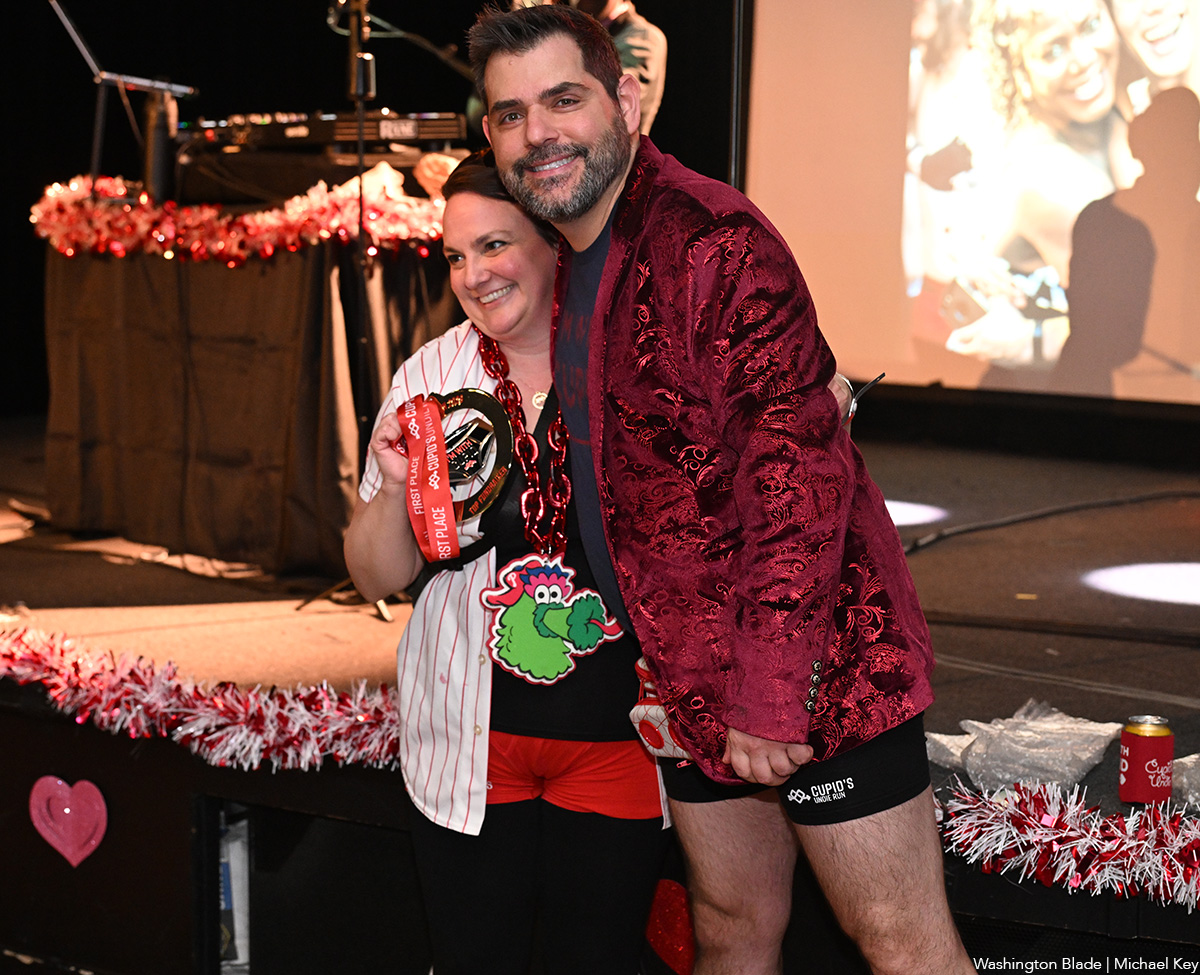

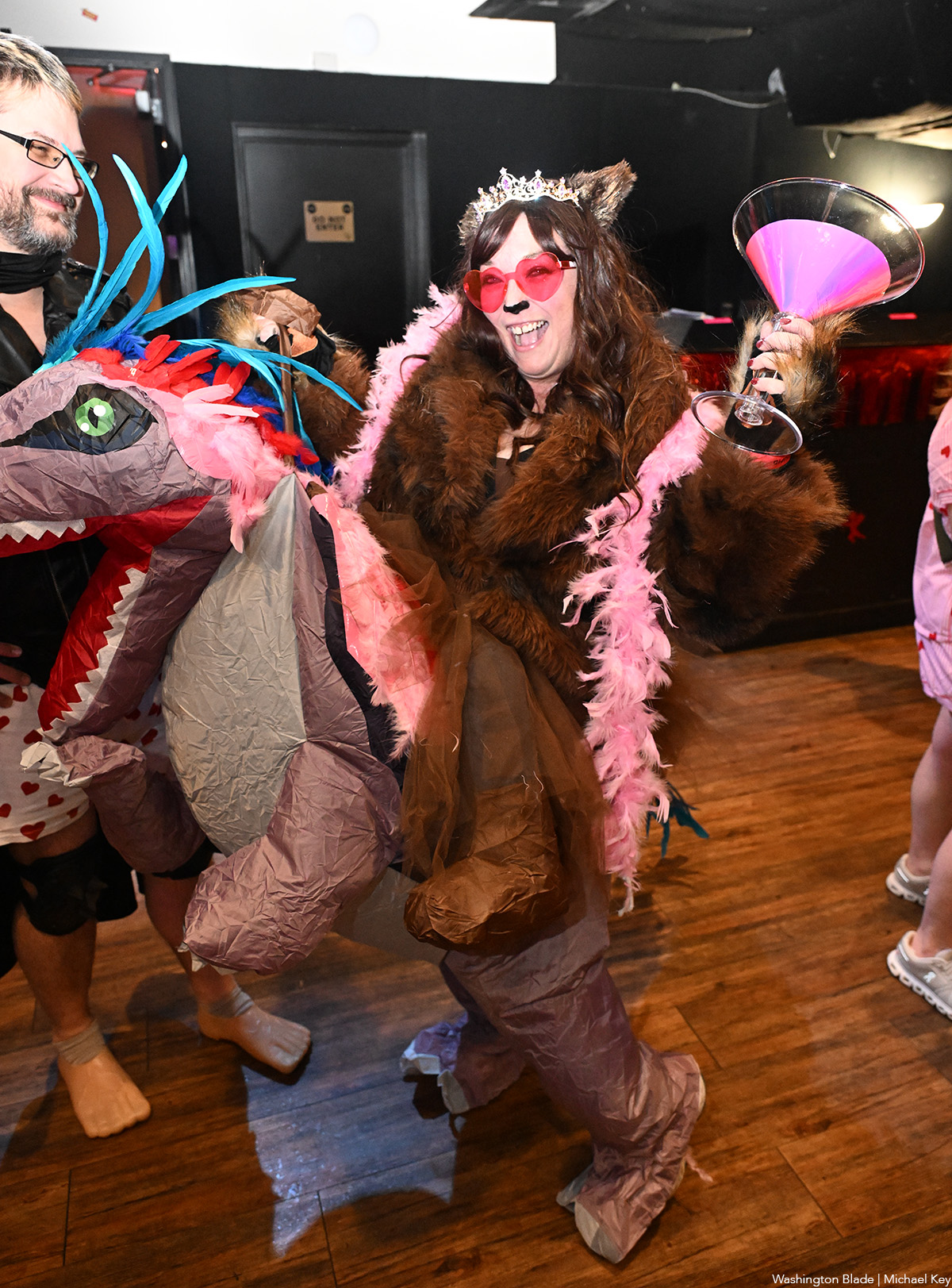


Sweat DC is officially expanding to Shaw, opening a new location at 1818 7th St., N.W., on Saturday, March 28 — and they’re kicking things off with a high-energy, community-first launch event.
To celebrate, Sweat DC is hosting Sweat Fest, a free community workout and social on Saturday, March 14, at 10 a.m. at the historic Howard Theatre. The event features a group fitness class, live DJ, local food and wellness partners, and a mission-driven partnership with the Open Goal Project, which works to expand access to youth soccer for players from marginalized communities.
For more details, visit Sweat DC’s website and reserve a spot on Eventbrite.
-

 Massachusetts5 days ago
Massachusetts5 days agoEXCLUSIVE: Markey says transgender rights fight is ‘next frontier’
-

 Opinions4 days ago
Opinions4 days agoGay Treasury Secretary’s silence on LGBTQ issues shows he is scum
-

 U.S. Military/Pentagon4 days ago
U.S. Military/Pentagon4 days ago4th Circuit rules against discharged service members with HIV
-

 New York4 days ago
New York4 days agoLawsuit to restore Stonewall Pride flag filed


















